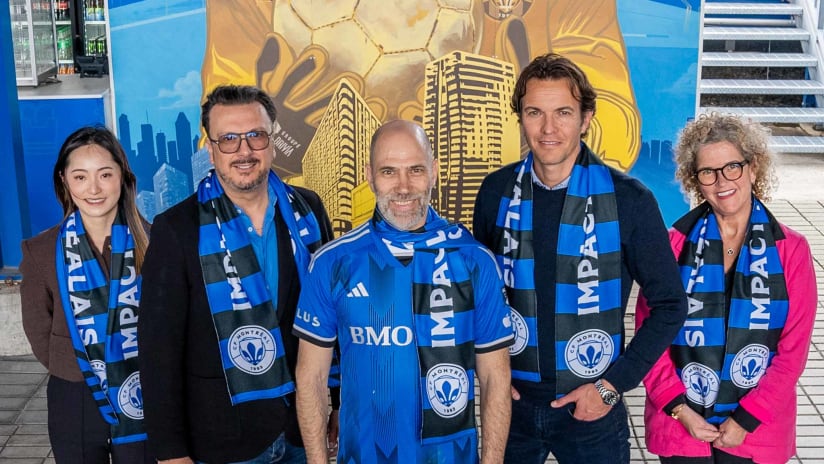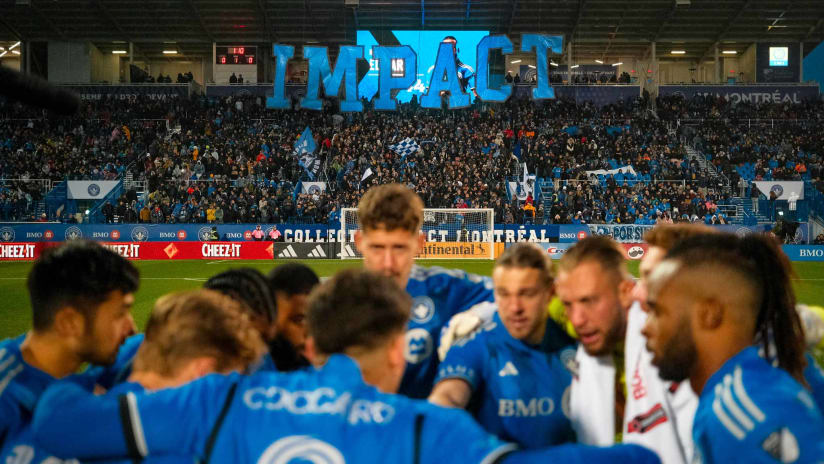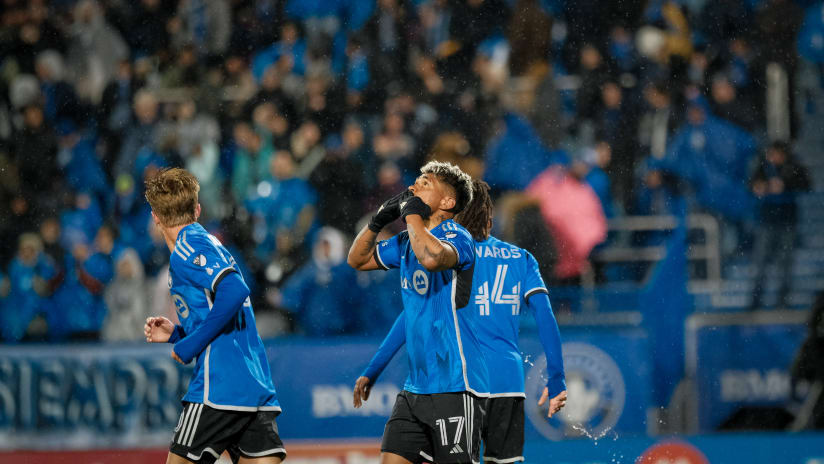It’s a different rivalry, maybe even bigger than those opposing the Vancouver club to Seattle and Portland, their American West coast neighbours, according to Thordarson.
“With the Timbers and the Sounders, it is and will always be a championship rivalry, for the longest of time in the second division and now in the MLS. But with Montreal, you add national pride to it.”
A privileged witness of the Quebec and B.C. metropolis matchups, midfielder Martin Nash, who recently retired and was promoted to scouting and is now a member of the first-team technical staff, played his first career game against the Impact in 1995 with the Vancouver 86ers, and his last on September 24, 2010, as a Whitecap.
“When I started, the rivalry was intense with both clubs aligning a core of local players and the pride to call ourselves the best team in Canada was huge, told Nash. In my very first game against Montreal, there were three red cards and it was nothing out of ordinary, it was the norm between us. Believe me, those games were fiercely battled!”
Another new alumnus, Eduardo Sebrango suited up for both the Impact and the Whitecaps as well as the Rochester Raging Rhinos, a team once seen by the Montreal players and fans as the club’s arch-rivals.
“At the end of the 90’s and at the start of the year 2000, I think the biggest rivalry in the league was between the Impact and the Rhinos, said Sebrango. Then, games opposing Montreal to Vancouver took over, since problems began to appear in Rochester while the Impact and the Whitecaps, on top of wanting to be considered the best team in the country, met often when you include playoff games (2006, 2008, 2009) and the Nutrilite Canadian Championship.”
A dozen, even hundreds of different players, participated in the rivalry between Montreal and Vancouver, and we can be certain it won’t go down simply because teams change every year.
“Veterans explain the situation to the newcomers but all of our players notice right away the animosity when they step on the field at Saputo Stadium, and feel how the Montreal fans are behind their team,” says Thordarson.
Fans play an important role in the rivalry, adds Eduardo Sebrango.
“When an article on my retirement was published on the Internet, a Whitecaps fan wrote a comment wishing me a good retirement, adding that I was the only Impact player he liked!”
The numerous player rotations don’t change the importance of what’s at stake for everybody, even though some haven’t been a part of the rivalry between both clubs.
“The most recent proof was on April 27 when the Whitecaps came to Saputo Stadium to play the first leg of the aggregate goal series for the Canadian Championship, tells Sebrango. The Vancouver coaches and players jumped of joy when Dunfield scored his goal, and yet, only three or four players at best had played the Impact before.”
Another factor playing an important role in the rivalry is the number of players having played for the two clubs and who tried to distinguish themselves in the games opposing both teams. Those players include Martin Nash, Eduardo Sebrango, Charles Gbeke, David Testo, Tony Donatelli, Joey Gjertsen, Wesley Charles, Zé Roberto, Alen Marcina and several others… and the arrival of Zurab Tsiskaridze.
“Separations aren’t always friendly and a player always wants to step up when the opportunity arises to prove to his former boss that he made a mistake,” says Sebrango.
The participants believe Montreal’s entry into the MLS in 2012 will bring a lot more spiciness to the rivalry between the Impact and the Whitecaps.
“It will definitely be more intense, acknowledges Teitur Thordarson. Our rivalries with Portland and Seattle grew even more since the three teams joined the MLS. It will be the same with Montreal.
According to Eduardo Sebrango, “it will be a huge rivalry that will be good for the league and for the teams because it will bring attention to the Montreal and Vancouver organisations.”
Since becoming the Impact head coach in May 2009, Marc Dos Santos confesses that two clubs challenge his players more than the others, the Carolina RailHawks and the… Vancouver Whitecaps.
“In their case, the historic baggage is important and has become more tense in the last two seasons, tells Dos Santos. It really is our biggest rivalry and it’s even stronger this season since we want to prove our worth against a club now playing in the MLS.”
Chapters were written during the regular seasons, in the 2009 league final but also in the Nutrilite Canadian Championship, where the Whitecaps were guaranteed a first round qualification match in the CONCACAF Champions League until the Impact imploded and suffered a 6-1 loss to Toronto FC at Saputo Stadium on June 18, 2009.
“I’ve turned the page and I’m sure most of the people have done so as well, but I’m conscious that it will always be a difficult memory that several Whitecaps fans won’t ever forget. The history and the similarities between both clubs are a promise that the intensity will be there when Montreal and Vancouver meet in the MLS starting in 2012.
The rivalry between the Impact and the Whitecaps spreads its roots in a story that started two decades ago and the future guarantees that it will never go down!
Martin Smith, Impact Media
CFMTL Media




